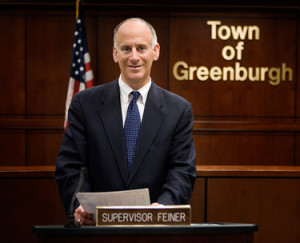Greenburgh’s $6.5M settlement largest known of its kind
The town of Greenburgh has reached a $6.5 million settlement with Fortress Bible Church, a Pentecostal congregation seeking to build a church and school on Pomander Drive.
The deal, approved by the town board at its Monday meeting, ends a lengthy legal battle in which Fortress said its constitutional rights were violated by the town.
Keane & Beane P.C., the law firm that represented Fortress Bible, said it believes the settlement is the largest ever in the nation for a land use case involving discrimination against a religious institution. Nicholas Ward-Willis, an attorney with Keane & Beane, said the church was pleased with the outcome.

“The settlement will allow the church to leave the courtroom behind and focus its attention on its religious endeavors and charitable works,” he said in a written statement.
The town”™s primary insurance carrier will cover $1 million of the settlement this year, according to town Supervisor Paul Feiner, a Democrat. Feiner said he believes additional carriers will also take on a portion but it is likely most of the remaining $5.5 million will fall on the shoulders of the town, at a time when it is finalizing its 2014 budget.
Fortress, which has been based in Mount Vernon for more than 40 years, purchased 6.5 acres in Greenburgh in March 1998, with the idea of building a larger facility to accommodate growing membership. The church has roughly 175 congregants.
In late 1998, the church proposed a one-structure development to house a 500-seat church and a K-12 school with maximum enrollment of 150 children. The area on Pomander Drive was a mixed-use zone and the structure was compliant with local code, but the town dragged its feet on approving the application. Officials cited traffic as their main area of concern with the proposal, though several elected members publicly stated they did not like taking the property off of the tax rolls by having a tax-exempt church on the grounds.
The church filed a lawsuit against the town in 2003 after continued delays. The suit outlined town officials directing Greenburgh employees to identify methods to delay or deny the application. The church said Feiner had asked the congregation to donate a fire truck or annual cash to the local fire department in light of the religious organization”™s property tax exemption.
In 2010, a U.S. District Court issued a scathing ruling of more than 200 pages that said the town had violated the church”™s constitutional rights of speech and religious worship. The decision said that town officials had shown hostility towards the applicant and intentionally held up approval of the application. The court ordered the town to issue permits for Fortress Bible and said the congregation was entitled to collect damages.
Greenburgh appealed the ruling, which was upheld by an appellate panel late last year. Prior to the approval of the settlement, Greenburgh was awaiting a trial to determine damages.
Feiner, in an email update to residents, said he disagreed with the court”™s ruling once again citing traffic concerns despite the court ruling taking a stance of dismissing that argument. Feiner said the town would comply and issue the permits Fortress has long sought. “If the church wants to start construction they can,” Feiner said. “The town will welcome the church to our community and will not create any obstacles that will create problems for the church.”
Greenburgh must calculate all permit fees for the church based on 2002 rates as part of the settlement. Donna E. Frosco, Keane & Beane”™s lead trial and appellate counsel for the church, said, “This settlement payment is the final win for the church in this unfortunate and unwarranted saga and puts an end to the wrongful war of attrition waged by the town against our client.”